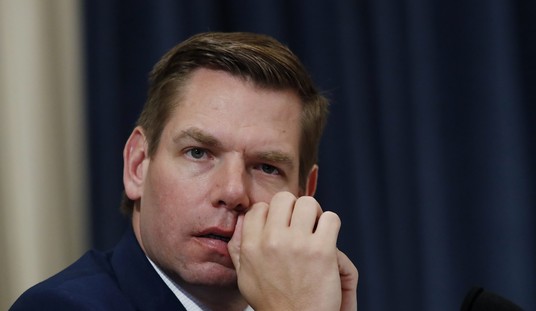With the fate of the Senate hanging in the balance, Chuck Schumer pulled out all the stops in recruiting candidates. One, in particular, was supposed to be a game changer:
For months, Chuck Schumer toiled on a seemingly fruitless task: Trying to persuade former Democratic Sen. Evan Bayh, who’d insisted for years that he was done with politics, to mount a comeback — and give Democrats a big boost in their bid to retake the Senate.
On Monday, the New York senator got his wish when Bayh jumped into the Indiana race against GOP Rep. Todd Young. The surprise entry by the former two-term senator and governor instantly upended the Senate landscape by putting in play a red state that had been all but written off by Democrats.
Back in 1987, Evan Bayh was Indiana’s secretary of state. One of the duties of that position was certifying tax exempt corporations.
As Indiana’s secretary of state, Evan Bayh approved the not-for-profit corporation status of a Ku Klux Klan organization that was used by group leaders to legitimize the racist group.
Bayh was responsible for deciding whether to officially incorporate the Invisible Empire Knights of the Ku Klux Klan when the group’s leader, Kenneth J. Taylor, submitted its application to the state in 1987 in hopes that incorporation would put “horror stories” about the Klan to rest, according to local reports.
Bayh granted the Klan group its corporate charter in November 1987, according to official documents obtained by the Washington Free Beacon from the Indiana University Archives in Bloomington, Indiana.
The Indiana Office of the Secretary of State documents, which are signed by Bayh, state that the group was “exclusively for charitable, educational, [and] religious purposes.”
Bayh’s team has tried to put a positive spin on this:
Bayh’s office told the reporter that it “held it up as long as [it] could” but that it was unable to deny the request. It pointed out that that the incorporation process usually takes just 10 days but took six months for the Klan group.
“We had no discretion in this area, based on the documentation sent by the incorporators,” said an office spokesperson. “We held it up as long as we could.”
Is that even the case? In order to receive incorporation the KKK had to have bylaws. Those bylaws, by the very nature of the organization, would have violated federal anti-discrimination statutes (that is, unless the Indiana Klan is much more ‘welcoming’ to non-whites, non-Christians, foreigners, etc. than we assume them to be), and that would have provided grounds to a) prevent incorporation and b) to revoke their non-profit status if they were found to violate their bylaws.
And this doesn’t comport all that well with other facts in the case:
In a phone interview with the Washington Free Beacon, Taylor said that he “never had any problem getting” incorporation. He said that Bayh’s office asked him to submit more information but once he did, the group’s paperwork “went right through.”
“We never had any problem getting it,” said Taylor, who is no longer associated with the KKK but was second in command nationally at the time of incorporation.
“The paperwork went right through,” Taylor said. “They didn’t harass us or anything.”
…
Although Bayh’s office said it had no choice but to incorporate Taylor’s KKK group, records show it was the first time a KKK-associated group had been approved in Indiana since the 1920s, when the state’s KKK was the most powerful in the country.”
Or, as noted by the Indiana’s largest black newspaper, the Indianapolis Recorder, under the headline “KKK forms new corporation here.”
“Just something to keep in mind.”
And did we mention this?
Taylor, who said that he was a Democrat all his life “until they put Obama in there and they made a Republican out of me,” has yet to decide whether he will vote for Bayh in his November election against Republican Todd Young.
“When Evan Bayh was here at home he seemed to do good, but then he left for a while and I don’t know what went on from there,” said Taylor, who praised Bayh’s work as governor of Indiana.
Asked whether he had voted for Bayh in previous elections, Taylor said that he “always voted a straight Democratic ticket.”
By all appearances Bayh was afraid that his refusal to incorporate the Klan, despite a purpose obviously in conflict with both federal and Indiana anti-discrimination laws, was one of political expediency. He didn’t want to sacrifice the votes of Democrats in Klan areas and he wanted to pander to black voters. So he split the baby, so to speak, approving the non-profit charter and contriving the “we did all we could” excuse.














Join the conversation as a VIP Member